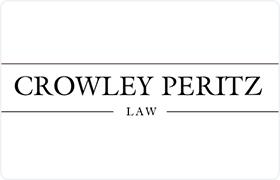 Middleburg Criminal Lawyers, Virginia
Middleburg Criminal Lawyers, Virginia
Sponsored Law Firm
-
 x
x

Click For More Info:
-
Crowley Peritz Law
10560 Main Street Suite 501 Fairfax, VA 22030» view mapCriminal Defense Law Over 20 Years Of Combined Experience
Our lawyers are experts in a variety of misdemeanor and felony crimes. We understand that choosing the best criminal lawyer for your case is not a simple task.
800-916-2741
Sponsored Lawyers
1-3 of 3 matches
Criminal, DUI-DWI, Traffic, Personal Injury, Litigation
Raised in historic Fredericksburg, Virginia, Tom attended Lafayette College in Easton, Pennsylvania. He obtained his undergraduate degree in History and Government-Law while earning Academic All-Patriot League status on the diamond. He earned his juris doctor from the University of Georgia School of Law. While in Athens, he participated in the Special Education Practicum helping underprivileged families earn the educational benefits afforded them under the law. After law school, he returned to northern Virginia, practicing for four years with a boutique litigation firm in Warrenton. He then transitioned to a growing regional firm, where he managed two criminal defenses offices and spearheaded their Virginia civil litigation practice for over eight years. Tom brings this wealth of experience to the already dynamic team at the Laurel Brigade Law Group.
(more)


 Matthew Crowley Fairfax, VA
Matthew Crowley Fairfax, VA Practice AreasExpertise
Practice AreasExpertise

